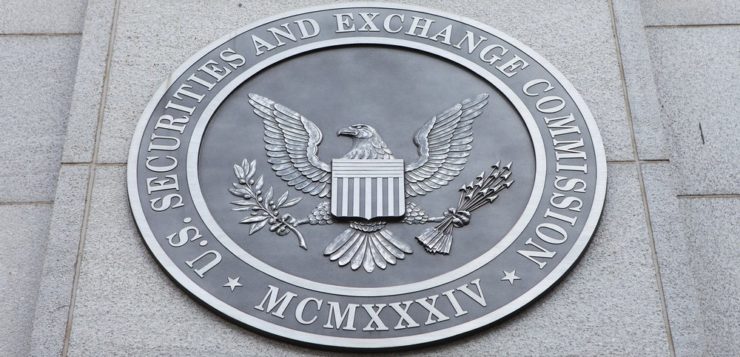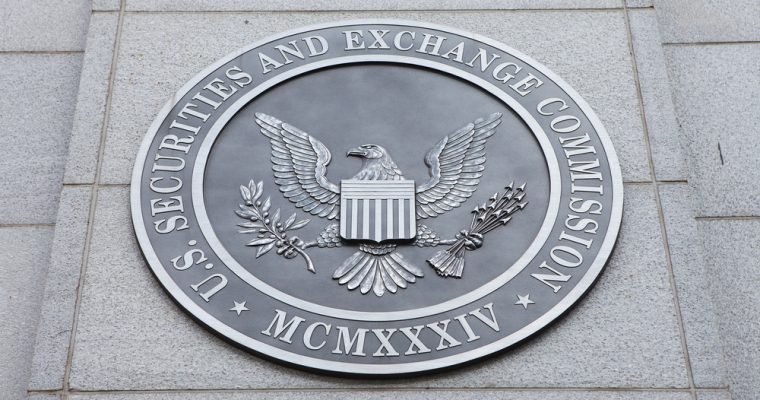CCN is expanding. Are you our next full-time journalist from the West Coast USA? Send us your CV and examples here.
The U.S. Securities and Exchange Commission (SEC) is actively cracking down on crypto initial coin offering (ICO) projects and a top official said earlier this year that dozens of cases are pending.
The next wave of enforcement by the SEC, stimulated by its recent settlement with professional boxer Floyd Mayweather and music producer DJ Khaled, is expected to be on social media influencers who have promoted ICOs to the general public.
When is ICO Promotion a Fraud?
Writers, YouTube celebrities, cryptocurrency review platforms, publications, and many more individuals and organizations could be targeted by the SEC if there’s sufficient evidence to prove that an individual or an organization received compensation from ICO organizers to promote a token sale, without disclosing the amount received from an ICO project to the target audience.
“Any celebrity or other individual who promotes a virtual token or coin that is a security must disclose the nature, scope, and amount of compensation received in exchange for the promotion,” the SEC said last year, emphasizing that the failure to disclose compensation is considered a fraudulent activity.
2/2 … Social media influencers are often paid promoters, not investment professionals, and the securities they’re touting, regardless of whether they are issued using traditional certificates or on the blockchain, could be frauds.” https://t.co/WzgvPU7Esg
— SEC Enforcement (@SEC_Enforcement) November 30, 2018
On November 28, the SEC followed up on its previous statement and said that investors must be aware of celebrities promoting tokens on the blockchain. The commission said:
“Investors should be skeptical of investment advice posted to social media platforms, and should not make decisions based on celebrity endorsements. Social media influencers are often paid promoters, not investment professionals, and the securities they’re touting, regardless of whether they are issued using traditional certificates or on the blockchain, could be frauds.”
If a celebrity openly promotes an ICO after receiving a payment to do so, and the ICO is considered a security by the SEC, the individual could be seen as a violator of U.S. securities regulations by the SEC.
Most ICOs are Securities
Over the past seven months, Coinbase, the largest fiat-to-crypto exchange in the U.S. market, has been working with regulators to list additional digital assets on its platform.
In May, Coinbase announced its interest in listing Stellar (XLM), Cardano (ADA), 0x (ZRX), Zcash (ZEC), and Basic Attention Token (BAT). Fast forward nearly seven months, the exchange has only been able to add three out of the five cryptocurrencies it set out to integrate.
Coinbase has been cautious in ensuring that a digital asset is not recognized as a security by the SEC because in a hypothetical case that an asset listed by an exchange is declared a security by the U.S. government, the exchange could be prosecuted for illicitly distributing unregistered securities.
On Tuesday, Hacked.com reported that Jay Clayton, the chairman of the SEC, said the commission views most ICOs in the global market as securities:
“We don’t believe Bitcoin is a security. Many of the ICOs that you see and you talk about, they are securities. And if you’re going to offer or sell securities, you have to do so in compliance with our laws. We’ve been clear about that, the recent actions further emphasized that our securities laws to apply to the ICO space, and if people are going to raise money using initial coin offerings they either have to do so in private placement or register with the SEC.”
Promoting an ICO recognized as a security without disclosing compensation to the target audience could result in a penalty that is twice larger than the compensation itself, as seen in the case of Floyd Mayweather who paid over $600,000 for receiving $300,000 to promote three ICOs.
Featured image from Shutterstock.
Get Exclusive Crypto Analysis by Professional Traders and Investors on Hacked.com. Sign up now and get the first month for free. Click here.








